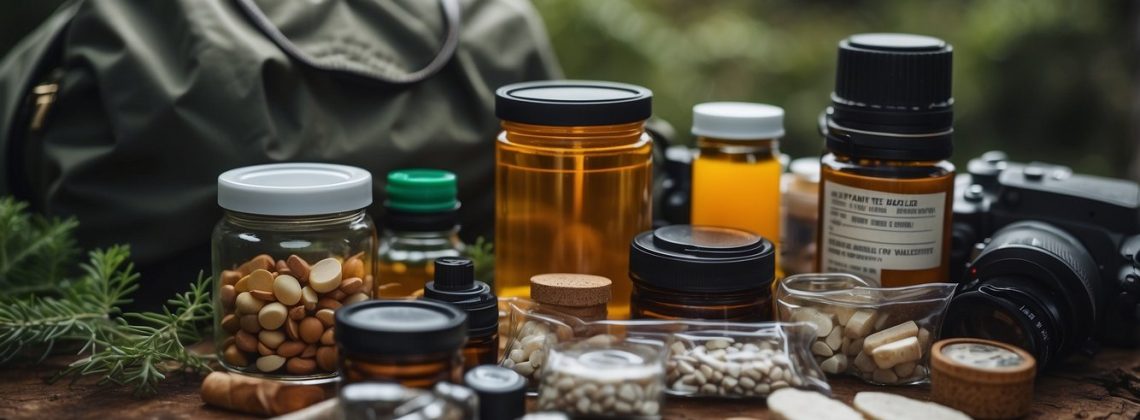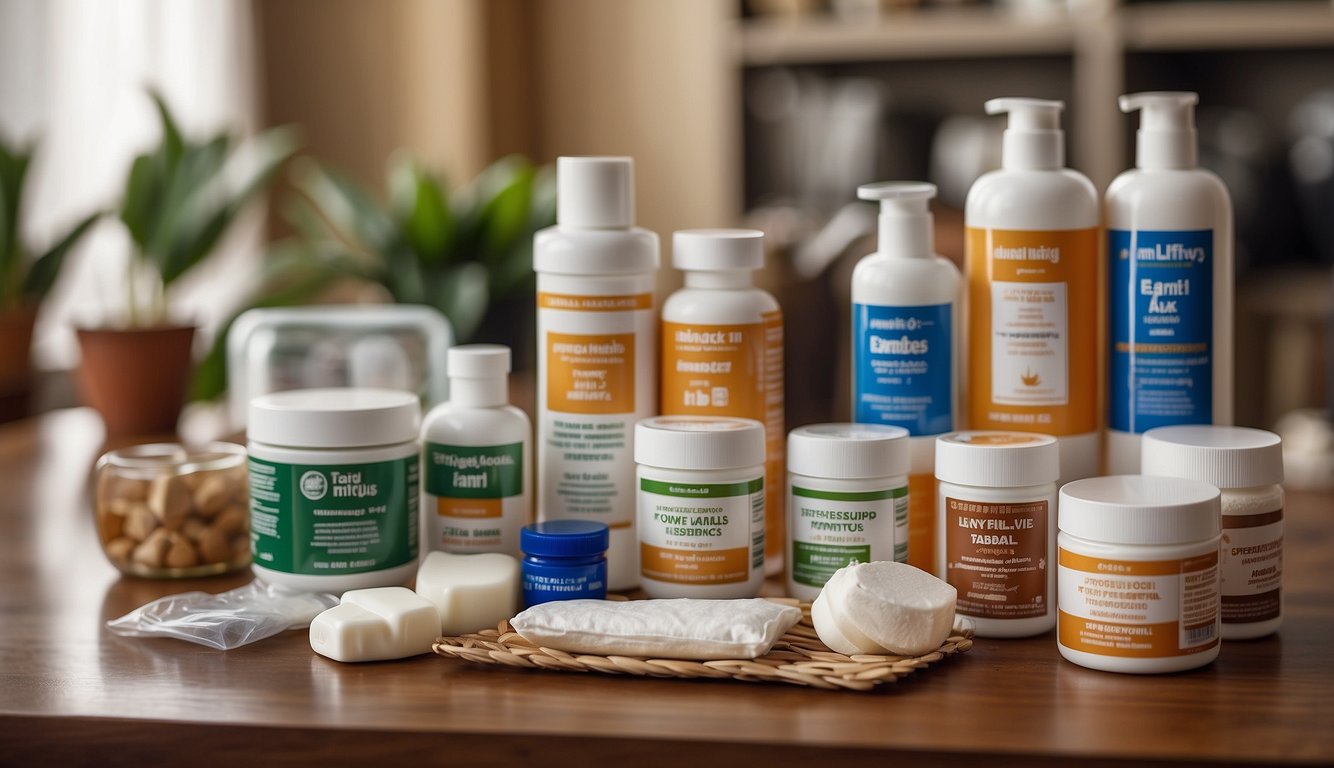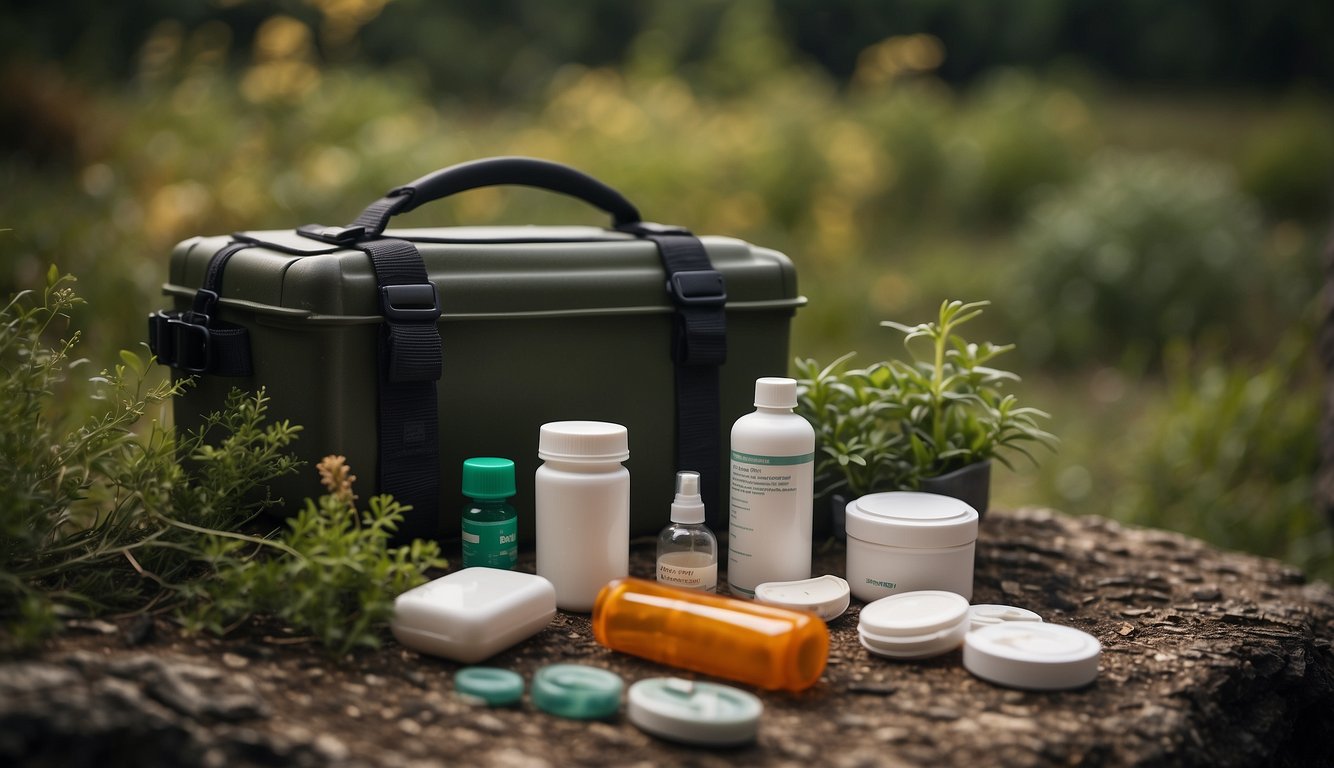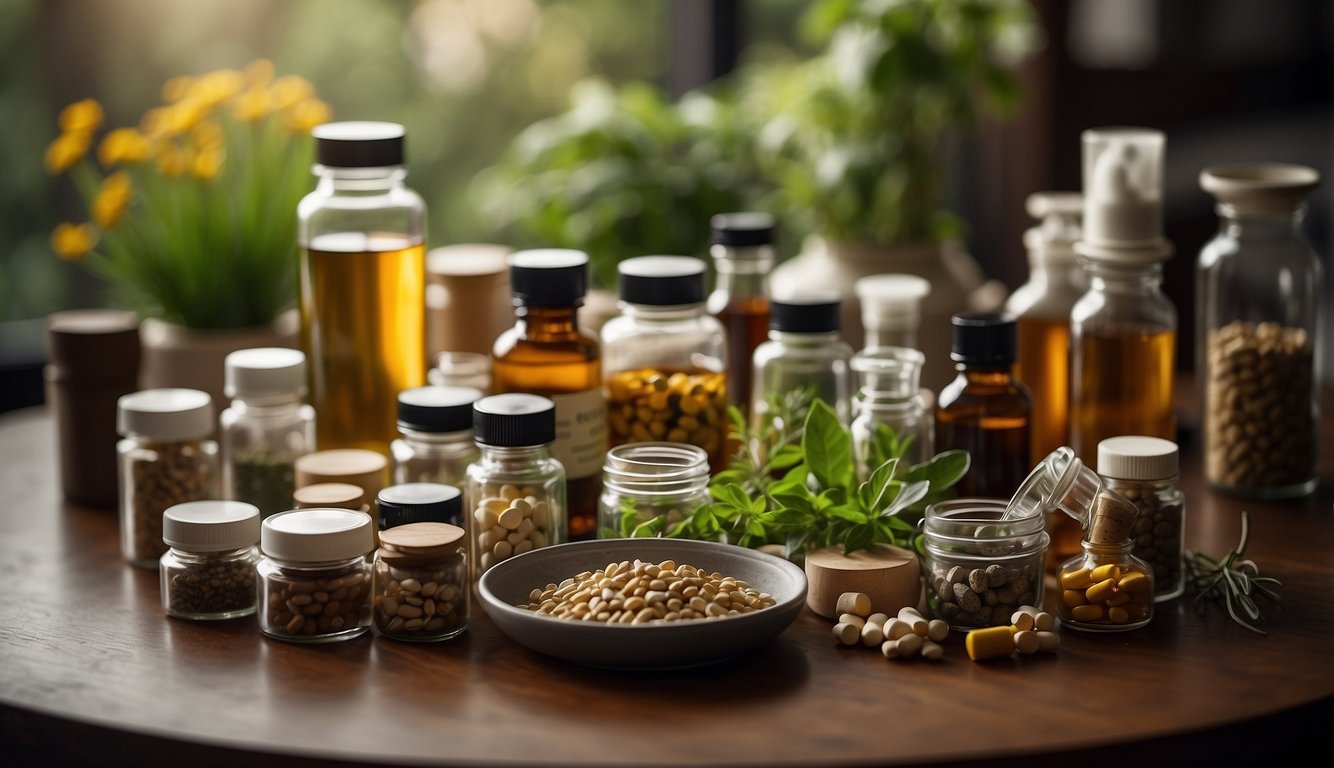
Essential Medications and Alternatives for Your Kit
Survival situations can be unpredictable, and you never know when you might need medical treatment or medication. In such cases, it is essential to have a solid understanding of survival pharmacology and the medications and alternatives that can help you stay healthy and safe. Whether you are an experienced survivalist or a novice, it is crucial to be well-informed about the basics of survival pharmacology.
The fundamentals of survival pharmacology include medication management and stockpiling, first aid kit essentials, and handling common ailments in survival scenarios. It is essential to have a well-stocked first aid kit that contains all the necessary medications and medical supplies for treating injuries and illnesses. You should also know how to use these medications and supplies in emergency situations to provide effective treatment.
In addition to conventional medications, alternative solutions and emergency measures can also be helpful in survival situations. These may include natural remedies, herbal supplements, and other non-pharmaceutical treatments that can help alleviate symptoms and promote healing. By having a solid understanding of survival pharmacology and the various medications and alternatives available, you can be better prepared to handle any medical emergencies that may arise in a survival scenario.
Key Takeaways
- Understanding survival pharmacology is essential for staying healthy and safe in survival situations.
- Proper medication management and stockpiling, as well as first aid kit essentials, are critical components of survival pharmacology.
- Alternative solutions and emergency measures can also be helpful in treating injuries and illnesses in survival scenarios.
Medical Disclaimer:
The information provided in this blog article is for general informational and educational purposes only. It is not intended as a substitute for professional medical advice, diagnosis, or treatment.
Always seek the advice of your physician or other qualified health providers with any questions you may have regarding a medical condition or before administering any medications or relying on any treatments mentioned herein. Never disregard professional medical advice or delay in seeking it because of something you have read on this website.
The authors and publishers of this article are not healthcare practitioners or providers, and this content does not constitute medical advice. We do not guarantee the accuracy or completeness of any information presented and are not responsible for any errors or omissions, or for results obtained from the use of this information.
Use of the information provided is solely at your own risk.
Fundamentals of Survival Pharmacology

When it comes to survival situations, having a basic understanding of medication essentials is crucial. Whether you are putting together a first aid kit or a more comprehensive medical kit, knowing what medications to include and how to use them can mean the difference between life and death. In this section, we will cover the fundamentals of survival pharmacology, including understanding medication essentials and assessing medical needs and risks.
Understanding Medication Essentials
When putting together a medical kit for survival situations, it is important to include both prescription and over-the-counter medications. Prescription medications should be obtained through a licensed healthcare provider and stored in their original packaging with the appropriate labeling. Over-the-counter medications can be purchased at a pharmacy or grocery store and should also be stored in their original packaging.
Some essential medications to consider including in your kit are:
- Pain relievers: such as acetaminophen or ibuprofen
- Antihistamines: for allergies and insect bites
- Antibiotics: for infections
- Anti-diarrheal medication: to prevent dehydration
- Anti-inflammatory medication: for sprains, strains, and other injuries
It is important to note that medications have expiration dates and should be regularly checked and replaced as needed. Additionally, you should be aware of any potential side effects or interactions with other medications you may be taking.
Assessing Medical Needs and Risks
In an emergency situation, it is important to assess medical needs and risks before administering any medication. This includes taking into account any pre-existing medical conditions, allergies, or medications that the individual may be taking. It is also important to consider the potential risks and benefits of administering medication in a survival situation.
When assessing medical needs and risks, consider the following:
- The severity of the injury or illness
- The individual’s medical history and current medications
- The potential risks and benefits of administering medication
- The availability of medical assistance
In some cases, it may be necessary to administer medication in a survival situation, even if there are potential risks involved. However, it is important to take precautions and seek medical assistance as soon as possible.
In conclusion, having a basic understanding of survival pharmacology is essential for any survival situation. By understanding medication essentials and assessing medical needs and risks, you can ensure that you are prepared to handle any emergency situation that may arise.
Medication Management and Stockpiling
When it comes to survival pharmacology, medication management and stockpiling are critical aspects to consider. In this section, we will discuss how to select core medications for survival and how to maintain an effective stockpile.
Selecting Core Medications for Survival
The first step in medication management and stockpiling is to select the core medications that you will need in a survival situation. This includes medications that are essential for treating common medical conditions and injuries. Some of the core medications that you should consider stockpiling include:
- Antibiotics: Antibiotics are essential for treating bacterial infections. They come in different forms, such as pills, creams, and injections. It is important to select a broad-spectrum antibiotic that can treat a wide range of bacterial infections. Keep in mind that antibiotics have a limited shelf life, so you should rotate your stockpile regularly.
- Pain relievers: Pain relievers are essential for treating pain and inflammation. Over-the-counter pain relievers like acetaminophen and ibuprofen can be effective for mild to moderate pain. Prescription opioids like oxycodone should be avoided due to their addictive nature.
- Allergy medications: Allergy medications like antihistamines can be essential for treating allergic reactions. They come in different forms, such as pills, creams, and injections.
- Insulin: If you are diabetic, it is essential to stockpile insulin. Insulin has a limited shelf life, so you should rotate your stockpile regularly.
When selecting core medications for survival, it is important to consider the cost and availability of the medications. Some medications may be expensive or difficult to obtain, so it is important to have alternatives in case you cannot obtain a specific medication.
Maintaining an Effective Stockpile
Once you have selected the core medications for survival, it is important to maintain an effective stockpile. This includes storing medications properly and rotating your stockpile regularly. Here are some tips for maintaining an effective stockpile:
- Store medications in a cool, dry place: Medications should be stored in a cool, dry place to prevent degradation. Avoid storing medications in areas that are exposed to heat and moisture, such as bathrooms and kitchens.
- Check expiration dates regularly: Medications have a limited shelf life, so it is important to check expiration dates regularly. Rotate your stockpile regularly to ensure that you have fresh medications on hand.
- Consider alternative medications: If a specific medication is not available or too expensive, consider alternative medications that can be effective for treating the same condition.
In conclusion, medication management and stockpiling are critical aspects of survival pharmacology. By selecting core medications for survival and maintaining an effective stockpile, you can ensure that you have the medications you need in a survival situation.
First Aid Kit Essentials

When it comes to survival, having a comprehensive first aid kit is essential. In an emergency situation, it’s important to have the necessary supplies to treat injuries and illnesses. In this section, we’ll discuss the key components of a first aid kit and what you should include.
Building a Comprehensive First Aid Kit
When building a first aid kit, it’s important to consider the potential risks you may encounter. For example, if you’re going on a hike in the wilderness, you may need supplies to treat cuts, scrapes, and insect bites. If you’re traveling to an area with poor sanitation, you may need supplies to treat diarrhea and dehydration.
Here are some items you should consider including in your first aid kit:
- Bandages of various sizes
- Antibiotic ointment
- Anti-itch cream
- Quick-clot
- Burn gel
- Re-hydration salts
- Scissors
- Tweezers
- Thermometer
- Disposable gloves
- Face mask
- Eye protection
It’s also important to consider the size and weight of your first aid kit. If you’re traveling light, you may need to prioritize lightweight, compact items.
Inclusion of Non-Pharmacological Items
In addition to medication and medical supplies, it’s important to include non-pharmacological items in your first aid kit. These items can help treat injuries and illnesses without the use of medication.
Here are some non-pharmacological items you should consider including in your first aid kit:
- A first aid manual
- A CPR mask
- A tourniquet
- A sling
- A splint
- A cold pack
- A hot pack
- A space blanket
By including these items in your first aid kit, you can be prepared for a wide range of emergencies. Remember to regularly check and update your first aid kit to ensure that all supplies are up-to-date and in good condition.
Handling Common Ailments in Survival Scenarios

In a survival scenario, you may not have access to modern medical facilities or prescription medications. Therefore, it is essential to have a well-stocked medicine kit that includes medications and alternatives for common ailments. Here are some tips on handling common ailments in survival scenarios.
Pain and Inflammation Management
Pain and inflammation can be debilitating in a survival situation, making it difficult to perform essential tasks. Over-the-counter medications such as ibuprofen, acetaminophen, and Aleve can help manage pain and reduce inflammation. These medications are available in tablet or capsule form and can be stored in your medicine kit.
If you prefer natural alternatives, you can try using essential oils such as peppermint or lavender, which have anti-inflammatory and pain-relieving properties. You can also try using hot or cold compresses to manage pain and inflammation.
Treating Allergies and Skin Conditions
Allergies and skin conditions can be a nuisance in a survival situation. Antihistamines such as Benadryl can help manage allergic reactions, while topical creams such as hydrocortisone can help relieve skin irritation and itching. These medications should also be included in your medicine kit.
If you prefer natural alternatives, you can try using aloe vera gel or coconut oil to soothe skin irritation. You can also try using natural antihistamines such as quercetin, which is found in foods such as onions and apples.
Gastrointestinal and Rehydration Solutions
Diarrhea, nausea, and vomiting can be common in a survival scenario, making it essential to have gastrointestinal and rehydration solutions in your medicine kit. Rehydration salts such as Pedialyte can help replace lost electrolytes and fluids, while over-the-counter medications such as Imodium can help manage diarrhea.
If you prefer natural alternatives, you can try using ginger or peppermint tea to relieve nausea. You can also try using probiotics such as kefir or yogurt to restore gut health and prevent diarrhea.
In conclusion, having a well-stocked medicine kit with essential medications and alternatives can help you manage common ailments in a survival scenario. By being prepared, you can ensure that you have the necessary tools to stay healthy and perform essential tasks.
Alternative Solutions and Emergency Measures

Using Over-the-Counter Substitutes
In emergency situations, when prescription medications are not available, over-the-counter substitutes can be used as alternative solutions. For example, if you are experiencing an allergic reaction and do not have an EpiPen available, you can use an antihistamine such as Benadryl to help alleviate symptoms. It is important to note that while these substitutes can be helpful in a pinch, they may not be as effective as prescription medications and should not be relied upon as a long-term solution.
Emergency Use of Non-Prescription Items
In addition to over-the-counter substitutes, there are also non-prescription items that can be used in emergency situations. Fish antibiotics, for example, can be used as an alternative to prescription antibiotics, but it is important to note that they are not regulated by the FDA and may not be safe or effective. Saline solution can be used to clean wounds and reduce the risk of infection, while activated charcoal can be used to treat poisoning. Vitamin C can also be used to boost the immune system and help fight off infection.
It is important to note that while these non-prescription items can be helpful in emergency situations, they should not be used as a substitute for professional medical care. If you are experiencing a medical emergency, it is important to seek professional medical attention immediately. In addition, it is important to consult with a healthcare professional before using any non-prescription items to ensure they are safe and effective for your specific needs.
In summary, while prescription medications are the preferred option for treating medical conditions, alternative solutions and emergency measures can be used in situations where prescription medications are not available. By using over-the-counter substitutes and non-prescription items, you can help alleviate symptoms and reduce the risk of complications in emergency situations. However, it is important to remember that these alternatives should not be relied upon as a long-term solution and should be used in conjunction with professional medical care.
Frequently Asked Questions

What are the primary medications included in emergency medical services (EMS) protocols?
EMS protocols typically include medications for pain relief, allergic reactions, seizures, and cardiac arrest. Pain relief medications may include opioids, nonsteroidal anti-inflammatory drugs (NSAIDs), and acetaminophen. Allergic reaction medications may include epinephrine and antihistamines. Seizure medications may include benzodiazepines, and cardiac arrest medications may include epinephrine and amiodarone.
How do medication-assisted treatments (MAT) differ from medications for opioid use disorder (MOUD)?
MAT is a comprehensive approach that combines medication with behavioral therapies and counseling to treat substance use disorders. MOUD, on the other hand, refers specifically to medications that are used to treat opioid use disorder, such as methadone, buprenorphine, and naltrexone. These medications are often used in combination with behavioral therapies and counseling to help individuals recover from opioid addiction.
Can you provide examples of medication-assisted treatments for substance use disorders?
Some examples of medication-assisted treatments for substance use disorders include methadone, buprenorphine, and naltrexone for opioid use disorder, and acamprosate, disulfiram, and naltrexone for alcohol use disorder.
What are the essential criteria for selecting drugs in survival pharmacology?
The essential criteria for selecting drugs in survival pharmacology include safety, efficacy, availability, and stability. Safety refers to the potential risks and side effects associated with the drug. Efficacy refers to the drug’s ability to treat the intended condition. Availability refers to the drug’s accessibility in emergency situations. Stability refers to the drug’s ability to maintain its potency and effectiveness over time.
What alternatives do healthcare providers recommend for managing behavioral symptoms without traditional medications?
Healthcare providers may recommend non-pharmacological interventions for managing behavioral symptoms, such as cognitive-behavioral therapy, mindfulness-based stress reduction, and relaxation techniques. These interventions can help individuals develop coping skills and manage their symptoms without relying on traditional medications.
What policies and procedures govern the use of medication-assisted treatment in healthcare settings?
The use of medication-assisted treatment in healthcare settings is governed by a variety of policies and procedures, including federal and state regulations, clinical guidelines, and institutional policies. These policies and procedures are designed to ensure the safe and effective use of these medications and to protect the rights and privacy of patients receiving treatment.

Leave a Reply